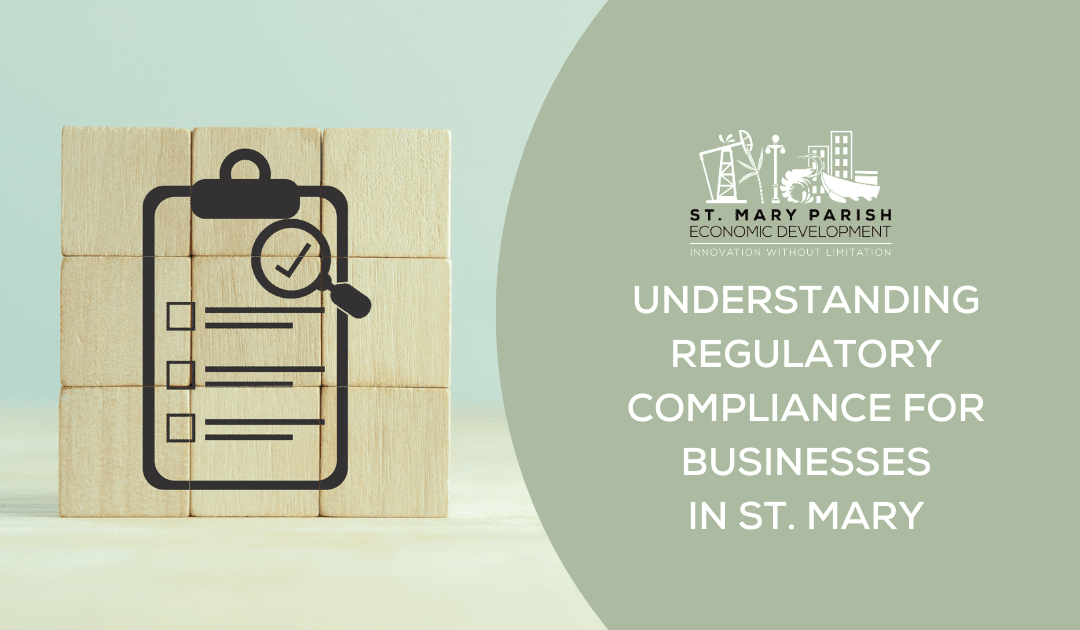Every business in St. Mary has to follow certain rules to operate legally and protect customers. Regulatory compliance is about meeting these requirements, whether they involve financial reporting, data security, or other legal obligations.
Following the rules helps businesses maintain trust, avoid penalties, and operate smoothly. This post covers what regulatory compliance is and why it matters.
What is Regulatory Compliance?
Regulatory compliance is the process businesses follow to meet laws, regulations, and industry standards that apply to their operations. It’s not optional.
Every business in St. Mary must operate within legal boundaries, whether it’s a small shop, a service provider, or a large corporation.
These rules cover everything from financial reporting and employee safety to environmental practices and customer data protection.
Why is Regulatory Compliance Important?
Governments establish laws and regulations to protect customers, employees, and business assets. These rules help create a fair and safe environment for everyone.
When businesses follow the rules, they demonstrate reliability and trustworthiness to customers and partners. A strong compliance record builds credibility, strengthens relationships, and sets the stage for growth.
In addition, staying on top of regulations helps prevent unnecessary disruptions so businesses can focus on serving customers and expanding their reach.
Common Compliance Regulations
Regulatory compliance depends on the industry a business operates in and the locations where it conducts business.
Some regulations apply across multiple sectors, while others are industry-specific. Here are some of the most common ones businesses in St. Mary may need to follow.
HIPAA
The Health Insurance Portability and Accountability Act (HIPAA) applies to businesses in the healthcare sector. It protects the privacy of health insurance policyholders and ensures that sensitive health information is handled securely.
Any business dealing with medical records, insurance claims, or patient data must comply with HIPAA regulations to protect confidential information.
PCI-DSS
The Payment Card Industry Data Security Standards (PCI-DSS) set requirements for businesses that handle credit card transactions. These standards help prevent fraud and data breaches by ensuring that payment data is processed and stored securely.
Digital merchants, retail businesses, and any company accepting credit card payments must follow these guidelines. The level of responsibility depends on business size and transaction volume, but compliance is essential for maintaining customer trust and preventing financial loss.
GLBA
The Gramm-Leach-Bliley Act (GLBA) applies to businesses in the financial sector. Companies that provide financial products or services such as loans, investment advice, or insurance, must comply with GLBA regulations.
This law requires businesses to explain their information-sharing practices to customers and implement safeguards to protect sensitive financial data.
Common Challenges Small Businesses Face with Regulatory Compliance
Small businesses often face challenges when it comes to regulatory compliance. Here are some of the most common ones.
Navigating a Complex Web of Regulations
Federal, state, and local governments each have their own regulations, and most industries have specific rules as well.
Keeping track of all these requirements can feel overwhelming, especially in highly regulated sectors such as healthcare and finance. Missing an important regulation or misunderstanding a requirement can lead to unexpected compliance issues.
Keeping Up with Constantly Changing Rules
Regulations don’t stay the same. They evolve along with business practices, technology, and customer expectations. Businesses must not only comply with existing rules but also stay updated when changes take effect.
For small businesses, this can be challenging, as tracking every update and adjusting processes takes time, effort, and an understanding of legal language that isn’t always easy to interpret.
Limited Time, Staff, and Budget
Small business owners often wear many hats, such as handling daily operations, overseeing employees, and taking care of customers.
Compliance becomes yet another responsibility on an already full plate. Many small businesses also have limited staff, which makes it harder to dedicate time and resources to regulatory requirements.
St. Mary Economic Development Can Help Your Business Stay Compliant
Regulatory compliance can feel overwhelming, but support is available. St. Mary Economic Development understands the challenges business owners in St. Mary face, and our team is ready to help.
Keeping up with the latest regulations and understanding the specific requirements of your industry can take time and effort, but we’re here to make the process easier at no cost.
Reach out to St. Mary Economic Development today and let our team help you stay on track with compliance requirements in St. Mary.

